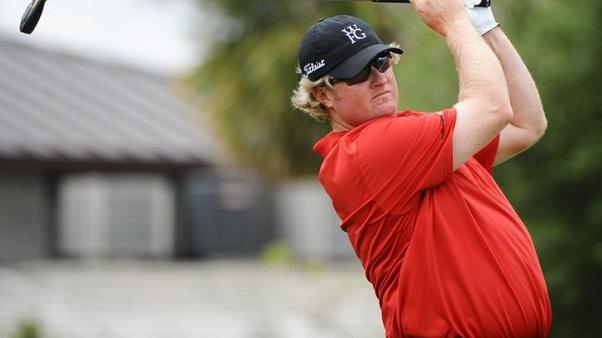
Golfer Brad Fritsch, who played collegiate golf at Campbell and resides in Holly Springs, has been banned for three months after he reported himself to PGA Tour officials for violating its anti-doping policy, the governing body said on Monday.
The 40-year-old Canadian, who plays on the secondary Buy.com Tour and is eligible to return to competition on Feb. 28, said the banned substance was in a supplement he had been taking to assist weight loss.
“Mr. Fritsch self-reported this information after discovering that an ingredient in a supplement that he was taking was on the prohibited list,” the Tour said in a statement.
“He has acknowledged his inadvertent error and accepted his suspension.”
Fritsch, in a Facebook posting, said his heart had “sank” when he realized that one of the supplements he was taking included dehydroepiandrosterone (DHEA).
“That … supplement ended up containing a substance called DHEA,” he wrote.
“I’m just so upset with myself that I didn’t think to question what was in the supplements. But I never did. And in the program rules, it stipulates that a self-report is the same as a positive test.”
Fritsch has won once on the Buy.com Tour.
DHEA is a hormone produced by the adrenal glands and its production peaks when someone is in their mid-20s, according to the webmd.com website. In most people, production gradually declines with age.
Fritsch joins a small list of players suspended since the PGA Tour began drug testing in 2008.
With the exception of former world No. 1 Vijay Singh, most have been little-known journeymen.
Singh was suspended for 90 days in 2013 after saying in a magazine interview that he was using deer antler spray.
The tour banned Singh for using the spray, which contained an insulin-like growth factor on its banned list.
The suspension was lifted after the World Anti-Doping Agency (WADA) concluded that the spray should be removed from its list of banned substances.



